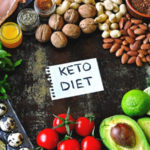The Right Time to Drink Milk
In fact, it is not recommended to drink milk on an empty stomach in the morning or before bedtime. When the stomach is empty, the body has a hard time absorbing the nutrients in milk, especially for older people. In fact, many people feel bloated and have difficulty digesting, which can affect their normal sleep quality.

So when is the best time to drink milk for the body?
2 hours after breakfast
At this time, there are some types of food in the digestive system, and drinking milk will not cause indigestion or other problems. The body can digest and absorb nutrients more easily.
2 hours before bedtime
When you drink milk 2 hours before bedtime, the tryptophan content in milk will gradually start to take effect, causing nerve cells in the brain to release serotonin and inhibit mental activity. By bedtime, the body will feel noticeably sleepy and you will quickly fall asleep.
10 AM or 3 PM
These two times of the day also correspond to 2 hours after breakfast and lunch. Drinking milk at this time can help replenish energy. People with medical conditions can also sunbathe after drinking milk, which helps the body synthesize vitamin D and promote calcium absorption.
Of course, the timing of milk consumption mainly depends on your personal lifestyle habits. If you don’t feel significantly uncomfortable after drinking milk on an empty stomach or before bedtime, you don’t need to change your habits.
People who should limit milk consumption
Milk is a familiar beverage that provides additional nutrients to the body, so it is always present in our homes. However, the following groups of people should not or should limit milk consumption.

People with lactose intolerance or milk allergies: When eating or drinking products made from milk, these people cannot completely digest the lactose in milk, leading to diarrhea and bloating.
People with diabetes or poor blood sugar control: Lactose in milk is not suitable for this group, as it can increase blood sugar levels.
Currently, there are many types of milk suitable for different consumer needs, such as fresh milk, almond milk, soy milk, cashew milk, etc. You can use these types of milk as substitutes for regular milk. People with diabetes should consume specialized milk or sugar-free fresh milk with fewer additives.



































